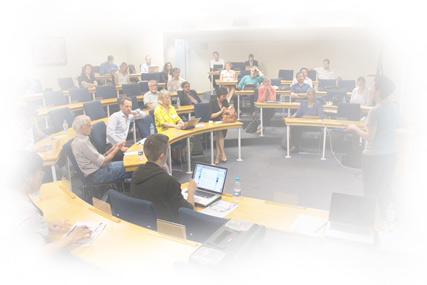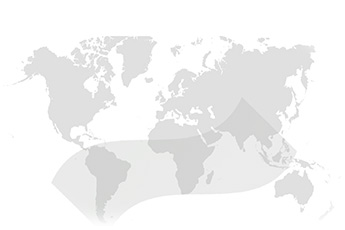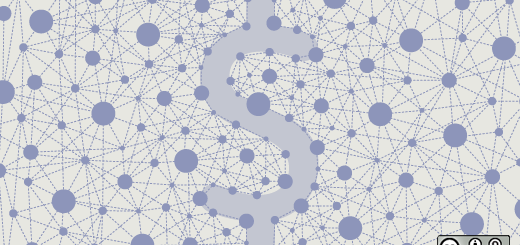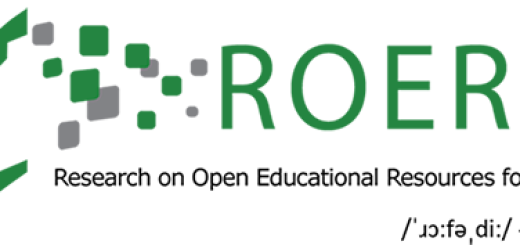| Sarita Ranchod and Sonja Boezak of Under the Rainbow Consultants collaborated with the ROER4D project in articulating a conceptual framework and lens for exploring intersectionality and gender dynamics in open education research. This guest blog post outlines their thoughts on the process. The blog is dedicated to the memory of Professor Elaine Rosa Salo, African feminist intellectual activist. |
“The doors of learning and culture shall be opened.”
(Freedom Charter, Congress of the People, South Africa, 1955)
As practicing feminists working in gender and social inclusion in international development contexts, including in feminist ICT4D and knowledge resources development, the invitation to focus on gender and social inclusion in open education as part of a research initiative in the Global South presented a welcome opportunity to reflect and apply lessons based on theory and practice, drawing on more than 20 years of experience.
From the outset we were acutely aware that while (financial) cost/s could be perceived as the main barrier to higher education access in the Global South, thereby making a clear argument for open education research, practices and resources, there is much more to consider in thinking about social inclusion and gender justice in open higher education.
Thus began a journey of imaginative freedom to use our particular feminist, intersectional perspectives and lived “Southern” realities in collaborating with the International Development Research Centre (IDRC)-funded Research on Open Educational Resources for Development (ROER4D) project in the University of Cape Town’s (UCT) Centre for Innovation in Learning and Teaching (CILT).
Sonal Zaveri’s (2017) proposed framework for gender equity in open education research, developed as part of the broader IDRC open education initiative, was the starting point of our engagement. We found congruence in her centering of power (power to, power from, power with, power within) as an initial consideration of open education’s gender and social inclusion dimensions. We read her critique of gender approaches and her question – “In what ways do open practices address hierarchical structures that control knowledge production and dissemination?” – as an endorsement for a firmly feminist stance.
Feminist thinkers have for years decried the depoliticised, technocentric nature of gender mainstreaming, arguing that such approaches have been stripped of their transformative power (the feminist politics at their heart), in the process of making them digestible to mainstream audiences, ticking the “gender boxes”, leaving patriarchal power structures appeased.
Add gender. Stir. Continue as norm(al). And let’s not touch or open those boxes.
But what if we did open them? The year 2015 marked such an opening in mass student protest action where the word “decolonisation” was no longer quietly whispered, but gained public currency in social media-savvy student movements across South Africa. A series of movements flared up, spurred by a generation of young people exasperated by the slow-turning wheels of “transformation”. Deeply excluded and alienated from institutions of higher learning, they were hampered by their everyday lived experiences of apartheid’s inequalities and legacies that continue to limit their freedoms.
#RhodesMustFall. #FeesMustFall. #PatriarchyMustFall. Aside from the tangible anger that defined these movements, based on deep-seated exclusion, the speed at which protest actions at one university could spur a mass movement, including national and global solidarity movements, was a distinguishing feature, thanks to social media.
How does open education research speak to the questions raised by these uprisings? Questions like: What counts as knowledge? Why have misogyny and other unequal power-politics embedded in higher education institutional cultures been protected and tolerated for so long? What does tolerance of such practices mean for women and gender non-conforming students and academics in these institutions?
The movements highlight the fact that opening higher education is a more complex process than may be assumed, depending on perspective, location and experience. They surfaced cultures, symbols and epistemic practices rooted in colonialism, slavery and apartheid that through their presence and practices dismissed the experiences of students and staff who are the children of colonial subjugation, slavery and apartheid.
What started as the removal of a specific symbol of arch-imperialist Cecil John Rhodes at UCT, #RhodesMustFall quickly mushroomed into a broader movement for the decolonisation of higher education across the country, and beyond.
The impetus of #FeesMustFall came from historically excluded students who met entrance criteria, but could not afford the rising costs of higher education. Rising fees fuelled already-existing education inequalities along race, class and gender lines. The movement’s class politics was further demonstrated by its concern with the labour conditions of outsourced workers in higher education institutions. While the students involved did not all come from working class backgrounds, and were not all Black, their concern for the situation of largely poor, Black and African women, highlighted global capitalist employment practices in the operation of higher education institutions.
#FeesMustFall articulated a demand for the realisation of the vaunted, historic commitment that “the doors of learning and culture shall be opened” in the Freedom Charter, a vision for a free, democratic, non-racial and non-sexist South Africa, adopted by the Congress of the People at Kliptown, Johannesburg, in 1955.
Other commitments from the Freedom Charter were exhumed by these movements:
“All the cultural treasures of mankind [sic] shall be open to all, by free exchange of books, ideas and contact with other lands;
The aim of education shall be to teach the youth to love their people and their culture, to honour human brotherhood [sic], liberty and peace”
#RhodesMustFall broadened to engage with the deep-seated alienation historically marginalised students were experiencing at historically white universities: Who was appointed to teach, what they were teaching, who had power in academic departments, who did not? There was a fundamental questioning of the biases inherent in the (forms of) knowledges being taught and prescribed in practice.
#PatriarchyMustFall, #RUReferenceList and #RapeCulture were responses by South African women students to long-term institutional impunity of sexual violence against women students and academics. At the intersections of the power-related exclusions raised by these movements lie the keys for the articulation and analysis of oppressive systems of power that create and sustain the alienation that gave rise to these movements.
A feminist intersectional approach to open education demands a thorough analysis of power dimensions in relation to who creates knowledge, how and why it is created, and for whom. In particular, it allows for engaging with structural (systemic), institutional (hegemonic) and sociopolitical domains and the specific axes of social division that work together to include and exclude in higher education.
Opening the “power box” and delving into its layers requires understanding that knowledge is situational; and that the perspectives of the excluded and marginalised provide an angle from which to examine how systemic, hegemonic and socio-political power function to influence open education. Fostering social inclusion in opening higher education requires engagement with these questions.
Feminism, wrote Elaine Rosa Salo in a 2001 article published in Agenda, “signals a refusal of oppression, and a commitment to struggling for […] liberation from all forms of oppression – internal, external, psychological and emotional, socio-economic, political and philosophical.”
In brief: in thinking about open education research, we need to consider the politics of knowledge and power, central tenets of feminism and decolonisation, and, by extension, intersectionality. We need to consider how we are imagining open education research, who is producing such research, from which location, for whom, and with which assumptions embedded. Lessons on crafting decolonisation, feminism and intersectionality teach us that these considerations cannot be ignored.





